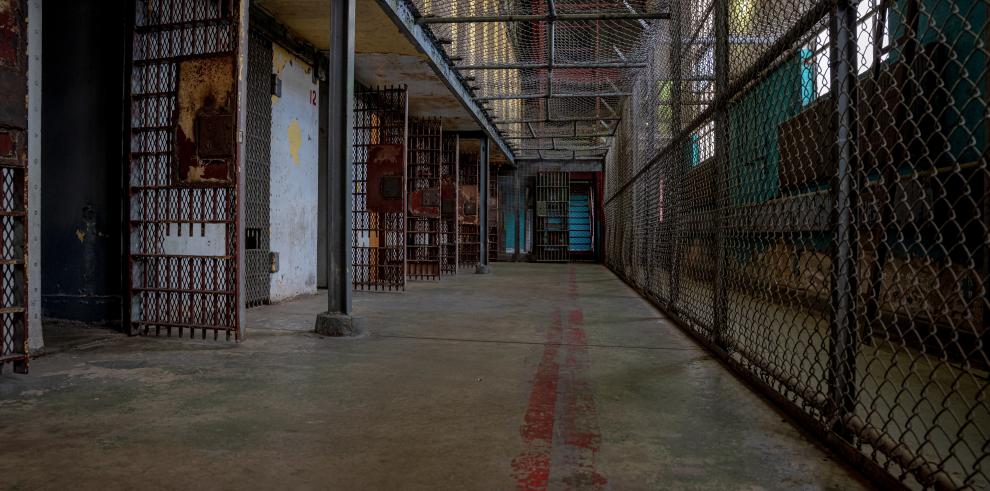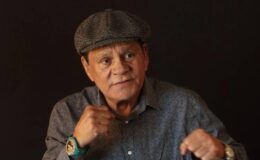

“Whoever does not live it, does not understand it, but you have to get used to it. There is not another option!”. Whoever affirms this is one of the more than 21,000 prisoners who survive in the country’s jails. The prisoner testified with resignation, in that purgatory, the feeling of abandonment of him as the punishment that society imposed on him for breaking the law.
José Moro was sentenced to eight years in prison for attempted murder. They moved him 32 months ago to the “tomb of the living”, a dungeon six meters long by three meters wide, originally built to house 10 people.

However, 23 detainees live in that “matchbox”, with a toilet that is unusable due to lack of water and a half-meter window that does not serve as a fan, but as a toilet. The feces are thrown by her into the patio.
In that space, the size of a dining room in the house of a family of five, José sleeps on the floor, on a mat. He feels lucky if one night they give him space in a hammock. “There is no bed for so many people”, is the cry of the inmates.

In recent years, overcrowding has reached worrying levels in prisons in the province of Panama. The same occurs in Coclé, Los Santos and Veraguas. The prison system, supposedly with a capacity for 14,591 inmates, currently houses 21,523. Statistics at the end of October 2022 reveal that overpopulation is close to 50%.
FRENCH PHILOSOPHER, HISTORIAN, SOCIOLOGIST AND PSYCHOLOGIST
José recounts that in the penitentiary where he is confined, the water only arrives for 30 minutes and, sporadically, twice a day. When the faucet expels the liquid, the screaming begins. Yeah! Everyone runs wild with their plastic containers to store some water for the only daily bath, which does not suffocate the heat produced by the sun’s rays penetrating the walls, ceiling and cement floor.

Before, the water took two days to reach them and, despite the fact that the supply has improved, the quality is still poor. He warns that they constantly suffer from diarrhea and the only thing they can assume – due to the lack of laboratory tests – is that the water is contaminated and affects their bodies.
Health

Sanitary conditions in the prison are precarious. The inmates manage to do their physiological needs, in a toilet without water. With newspaper, placed on the floor, or in plastic bags, they collect the feces of the group of detainees and throw the package out the window.
They call this practice “capachos” (probably, because that is what they call a container similar to a basket in Colombia). The urine and feces of the 23 inmates who survive in that cell go there. “Even a canteen smells better!” José admits, in an attempt to describe the nauseating odors that permeate his space in the prison.

Ironically, the “capacheros” arose from there, prisoners who do cleaning work outside the pavilion, to commute their sentences, who hide under the figure of “internal cleaner”. Every morning and evening a detainee takes a rake and removes the waste from the hundred inmates on the wing.
Education is not everyone’s right either. It is not measured by capacity or performance, but by the money that moves clandestinely in prisons. “That is reserved (most of the time, because there are exceptions) for the children of the prison elite,” says José. They expect their hands to be “oiled”.
Figures supplied by the Ministry of Education prove him right. 16% of the detainees are inserted in the school system that attends primary, secondary or university. This despite the fact that the National Institute of Vocational Training and Training for Human Development offers technical courses in prisons.
José is one of those exceptions. Despite the barriers to getting an education in prison, José studies. He assures that he understood that the path is not crime, but education. He does it with his own resources, with the help of a mobile phone that managed to enter the cell, without this representing a resource to commute sentences as it was not authorized by a compliance judge. Thus, under these conditions, he is close to completing his higher studies. He prepares his thesis to become a lawyer.

Claudia Osiris Alvarado, a criminal lawyer, assured that the job opportunity to commute sentences is also scarce. Those who have had the opportunity to do so have paid between $1,000 and $1,500. Whom? “To the authorities,” said the lawyer.
In general, the requests for evaluations remain stored in the desks of the officials of the prison system, without any hope. “Everything is linked to corruption,” he said.

The law of the strongest
Criminal security inside where José is detained is not good at all. Inside, the law of the strongest prevails. Detainees have their rules, and breaking them leads to a beating. “They can’t kill you because that would bring legal setbacks,” says José, but they are beaten without security noticing. He assures that there is only one guard for each pavilion of more than 100 detainees.

The blows follow one another in silence, in a scenario of recurring shouting and relaxation. “They don’t hit you in the face to prevent the guards from noticing that there is a person in pain. I always lower my head, whether I am right or not, ”she says, explaining how she deals with these abuses.
In the prison, they live under the regime of gangs and gang members. “You have to respect – he points out – the general, the lieutenant, the sub-lieutenant and also the corporal who is part of the ranks of the military regime of the pavilion. Poor anyone who plays a joke on him ”. Thus, in this environment, the inmates have “learned” to manage to avoid beatings and, in the worst case, death.

José pauses and warns that he will not spend his life in the dungeon, where he met God. That is why he sends a message to young people: “Freedom is a great gift to lose it due to a bad decision.” He raises his voice in the hope that his testimony will help others put a stop to his life and avoid such an ordeal.
slow and belated justice
José’s testimony is repeated in other prisons in Panama. Carlos is about to serve four of the five years of his sentence. He begs that the system apply probation to him, after having served more than two thirds of his punishment.
Jackeline, his mother, tells the story. Broken voice, tears, drown out her cry: “He is innocent, he is innocent!” He has no resources and cannot afford a criminal lawyer to expedite the procedures for probation. “I don’t have a lawyer because there is only jail here for the cook’s children,” she exclaims frustrated.
His son is serving a sentence in a prison complex in the Panamanian capital. But that doesn’t make a difference.
Health care is a “tombola”, warns Serafina, the mother of another detainee named Javier. She reveals that during “the covid-19 pandemic, there were sick boys and they themselves had to find solutions.”
In an internal video from the Chitré public prison, which circulated in 2020, a detainee alerted of a coronavirus outbreak and the detainees were not provided with medical attention.
A recent report from the United States Department of State on Human Rights in Panama established that in 2021, due to SARS-CoV-2, “medical care in general was inadequate due to lack of personnel, transportation, and medical resources.”
The mother also maintained that Panamanian prisons do not offer work to commute sentences, and that education continues to be selective.
The result of an investigation carried out by La Estrella de Panamá is presented in a series of reports that reveal how Panama’s prisons are turned into cemeteries, where detainees are buried alive.
Panama has one of the highest prison rates
More than 50% of the crimes in prisons are related to drugs and other related ones such as gangs and trafficking, associated in one way or another with the geographical position of the country. This directly influences the rate of the prison population, he explained in a last interview given by the late Andrés Gutiérrez Bonilla, one of the five directors of the Penitentiary System that this government administration has had (2019-2022). He added that the increase in the prison population is due to many factors, most of them complex, that make it difficult to relieve prisons. “We must consider that Panama is located in the center of the American continent, a violent continent, possibly the most violent in the world,” he said.
Thus, he went on to explain that when talking about violence in Latin America, it is necessary to talk about drug trafficking and the so-called “war on drugs”, which in the last 50 years has become one of the two or three defining issues of societies and their relationship with the rest of the world. The issue of drug trafficking is present in most of the cases handled by the Penitentiary System, he assured.
According to World Prison Brief, the database that provides access to information on prison systems around the world and is updated monthly using largely government sources, Panama is the second country in the Central American region with the highest population index. penitentiary.
Panama has 476 detainees for every 100,000 inhabitants, one of the highest rates in the region, only surpassed by El Salvador, with 605. Costa Rica, however, with 700,000 more inhabitants than Panama, has 301 inmates for every 100,000 population.










No Comments